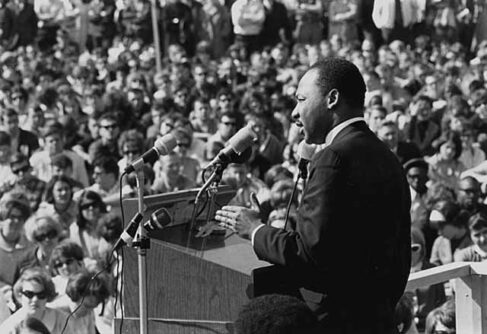America’s economy continues to become less free, according to the Fraser Institute’s annual Economic Freedom of the World report, which was released last week. And that has important implications for American philanthropy.
When the Fraser Institute, with key input from Nobel laureate Milton Friedman, first published the Economic Freedom of the World index in 1996, the U.S. economy was ranked as the freest in the OECD. Today, the United States is ranked behind New Zealand, Canada, the United Kingdom, and a dozen other countries—many of them countries that Americans habitually think of as countries with more economic restrictions and less freedom than their own.
What’s happened to make the United States fall in its ranking? The study’s authors argue it is not primarily that other countries have surpassed the United States in rank by increasing their economic freedom, but that U.S. economic freedom has become more constrained:
What accounts for the US decline? While the US ratings and rankings have fallen in all five areas of the [Economic Freedom of the World] index, the reductions have been largest in the Legal System and Protection of Property Rights … Freedom to Trade Internationally … and Regulation… The plunge in [the Legal System and Protection of Property Rights] has been particularly alarming.
In short, Americans and their government have made choices that have curtailed their economic freedom.
There are many reasons to be concerned about a decline in economic freedom, including the impact on philanthropy.
Economic freedom creates conditions for greater economic growth; conversely, less freedom reliably means less economic growth. The report’s authors assert:
unless policies undermining economic freedom are reversed, the future annual growth of the US economy will be only about half its historic average of 3%.
Of course, a bigger, growing economy means that individuals acquire more wealth to share through philanthropy. On the other hand, when economic growth slumps, the government’s role grows. There are more calls for government to step in to provide for needs that once were met by local philanthropic organizations.
But it is not simply that slower economic growth means people have less wealth to expend on philanthropy in the short term. There are long-term cultural factors at play. Economic freedom adds to the sum total of freedom enjoyed in a society—and freer societies are typically more philanthropic. (Admittedly, economic freedom need not be accompanied by political and social freedoms: the two countries long ranked as most free in the Economic Freedom of the World index are Hong Kong and Singapore—countries where political freedoms are restricted. But, by and large, economic freedom goes hand-in-hand with political and social freedoms.)
Free societies foster the sense in the culture that individuals are responsible for themselves and for their communities. It’s only free societies that are marked by robust civil societies, where individuals come together in neighborhoods and communities to look after those around them through philanthropic ventures, large and small.
America remains the land of the free, as well as the most philanthropic country in the world. But we should keep an eye on trends to curb its freedom for many reasons—America’s great tradition of philanthropy being not the least of those.






